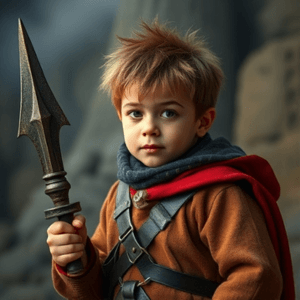
Storytime: It’s that magical moment when your little one snuggles up, and you start reading a tale about a bear who wears a tutu or a dragon who loves cupcakes. But hold on—did you know that storytelling does way more than just keep them entertained or help you sneak in a few minutes of peace? It’s actually a secret weapon in your child’s development. Yup, that’s right! Storytelling is like a superpower that helps with everything from learning new words to understanding feelings.
So, let’s dive into why reading those bedtime stories (or creating your own wacky tales) is more important than you think.
1. Words, Words, Words! (Vocab Boost!)
We all know kids are like little sponges, soaking up everything around them. When you tell stories, you’re not just entertaining them, you’re sneaking in a vocabulary lesson without them even realizing it. Suddenly, your kid knows the difference between “bewildered” and “bored,” or “glowing” and “gloomy” (and trust me, they’ll use these words to impress their friends—just wait for it).
Plus, hearing stories helps them pick up how language works—like the rhythm of sentences and the flow of conversation. So while they might be giggling at the idea of a pig flying a spaceship, they’re also learning how words work together. Sneaky, right?
2. Making Sense of a Crazy World
Kids are curious creatures—they want to know why the sky is blue, how people can talk to each other without using magic spells, and what makes a hero. Well, storytelling is like a GPS for all of that confusion. It helps kids process what’s going on in the world, whether it’s understanding that it’s okay to feel scared sometimes or figuring out why kindness matters more than winning a race.
And bonus points for letting them ask endless “why” questions during the story—they’ll start to understand that asking questions is how they unlock the mysteries of life!
3. Feel All the Feels
Stories aren’t just full of dragons and princesses—they’re full of feelings. When kids hear about characters who get upset, lose things, or have their own epic struggles, they begin to understand their own emotions a little better. “Oh, so when I’m mad, I’m just like that superhero who had a rough day!”
By hearing about characters working through their feelings—whether it’s sadness, excitement, or jealousy—kids learn to manage their own emotions. And sometimes, a silly story about a bear who can’t find his hat is just the way to teach your little one that feeling sad doesn’t last forever.
4. Boosting Their Imaginations (Hello, Future Inventor)
Storytime isn’t just about the characters—it’s about what happens in their heads. When you tell stories, kids start imagining things they’ve never even seen before: a talking sandwich, a treehouse made of candy, or maybe even a cat who dreams of becoming an astronaut. The more out-there the story, the better it is for their creative brains.
Plus, the more they hear stories, the more they’ll start telling their own. You might get a bedtime tale about a flying hamster one night, followed by a plot twist where the hamster becomes king of a marshmallow kingdom the next night. That’s their imagination at work, and it’s shaping their creativity like a clay sculpture.
5. Moral of the Story (Or Just a Good Laugh)
Let’s be honest, kids love a good moral. And no, I’m not talking about boring morals like “always be kind” (although that’s definitely important). I’m talking about the deep lessons, like “if you lie, you’ll turn into a donkey” or “never trust a fox who wears sunglasses” (yes, that’s a thing in stories). These lessons stick. Whether it’s about honesty, sharing, or looking out for others, kids absorb these values through the wacky world of stories.
And even if they’re not grasping the deeper moral, they’re still learning social rules—like why it’s not great to be the villain in every situation.
6. Confidence Boosters in Disguise
Here’s a fun fact: kids who hear stories about characters who overcome big obstacles often feel braver themselves. If a tiny mouse can defeat a giant, your kid might feel like they can conquer their own daily challenges, like speaking in front of the class or trying a new food (cue dramatic victory music).
It’s like giving them a mini superhero boost. Suddenly, every little thing feels a little less scary. And even if they don’t feel like a hero yet, they’re learning that it’s okay to take risks and face challenges head-on.
7. Family Bonding (That’s Right, Teamwork)
Storytime is an instant family bonding session. It’s not just about you reading to them—it’s about creating memories together. Whether it’s snuggled up with a picture book or acting out the adventures of a brave explorer, storytelling brings families closer. Plus, there’s something magical about sharing a favorite tale over and over again—it becomes a tradition, a little piece of your family’s heart.
And hey, who doesn’t love a bit of laughter when everyone’s making up their own ridiculous story about a talking tree?
Final Thoughts: The Story Continues
So, the next time you’re reading a story (or making one up on the spot about a frog who can play the piano), remember that you’re doing more than just keeping your kid entertained. You’re giving them the tools to become creative thinkers, compassionate humans, and emotional superheroes. Storytelling isn’t just fun—it’s magic in its purest form.
Now go ahead—create a world of adventure, laughter, and life lessons. Your child’s future storyteller will thank you later.




